In order to get the essential fiber Supplements for your Kids body needs each day, they might be need for a fiber supplement in your daily routine.
Because fiber supplements for kids can provide so many benefits, it’s important to know which types of supplements to choose from for your kid and how much they should be taking on a daily basis.
We’ve compiled a list of 10 types of fiber supplements for kids to help you find the best one for your child’s needs.
Check out our list below and remember to always consult with your doctor before giving your child any new supplement or medication.
PEOPLE ALSO READ: How do Processed foods have an effect on your Fitness
1) Soluble fiber Supplements for Kids
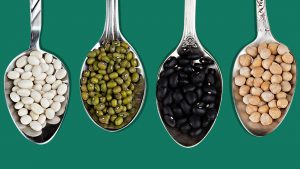
Soluble fiber (found in oats, apples, citrus fruits and legumes) absorbs water to form a gel that slows digestion.
This keeps you feeling full longer than refined foods. Soluble fiber also helps prevent LDL cholesterol from being absorbed by your body.
A diet rich in soluble fiber may help lower your risk of developing heart disease and type 2 diabetes because it reduces total cholesterol, LDL cholesterol and triglycerides while boosting HDL (good) cholesterol levels.
2) Insoluble fiber Supplements for Kids
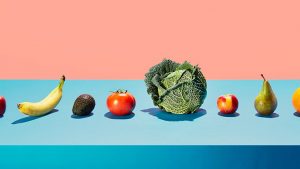
Insoluble fiber does not dissolve in water, so it adds bulk to stool. This makes your bowel movements larger and more frequent.
It also helps prevent constipation by adding to your stools’ weight, making it easier to pass them from your body.
Look for foods with at least 5 grams of insoluble fiber daily, such as whole-wheat bread or wheat bran cereal. Many vegetables and fruits contain insoluble fiber as well.
3) Whole Grains
Whole grains are a perfect fiber supplement for kids, especially those aged 1 to 8.
In fact, whole grains are so beneficial that they’re actually considered the new super-foods in several circles.
That doesn’t mean you should necessarily start feeding your children whole grains from day one; if a young child has trouble chewing and digesting solids, starting with more familiar options such as fruits and vegetables is likely a better idea.
4) Fruits
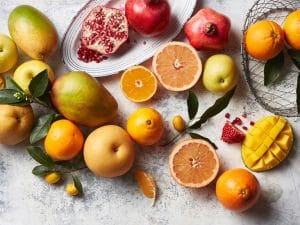
In addition to naturally occurring fiber, fruit is a great source of fiber. Bananas, apples, grapefruit and oranges are all great sources of fibre that can easily be incorporated into your child’s diet.
Fibre-rich fruits should be eaten by themselves to ensure maximum digestion and absorption in their system.
Children need at least 3g of fibre per day but ideally up to 5g daily depending on age. Children aged 2–5 years old require 4g, while children aged 6–8 years old require 5g and children 9–13 years old require 6g. Older kids (14–18 years) they require 7g of fibre each day.
5) Beans
Beans are high in fibre and it’s one the important Fiber Supplements for kids, so they should be a staple in your child’s diet.
If they don’t like beans on their own, try mixing them into some oatmeal or hiding them in other foods to disguise their taste.
Beans are also full of protein and help strengthen muscles. Plus, they’re affordable and easy to prepare.
Just remember that dried beans need to be soaked overnight before cooking!
6) Vegetables
Vegetables are loaded with fiber, which is essential to proper bowel functioning and overall health.
Incorporating more vegetables into your child’s diet is a great way to ensure they’re receiving enough fiber.
While most vegetables offer some degree of fiber content, some varieties like broccoli have a much higher percentage than others.
To get your child eating more veggies, try mixing them in with her favorite foods. For example, add broccoli to macaroni and cheese or stir-fry it along with chicken.
These small additions will help increase fiber intake without having an adverse effect on taste.
7) Nuts
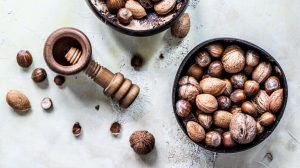
Make sure to buy unsalted nuts and portion-control them, so you don’t go overboard on calories.
Unsalted raw almonds make a great snack, as do walnuts and cashews. Almonds are packed with calcium, magnesium, potassium and fiber, too.
Walnuts have more omega-3 fatty acids than any other nut—they’re also rich in fiber and protein.
Plus they’re loaded with antioxidants. Cashews contain healthy fats that can help lower cholesterol.
Just be careful not to overdo it—these snacks should be used in moderation because they’re high in calories.
8) Flaxseed oil and/or seeds
Flaxseed oil is a great addition to any kid’s diet. Not only does it provide healthy fats, but also vitamin E and fiber.
Flaxseed oil can be added to smoothies or salads, or eaten by itself. Whole flaxseeds can be sprinkled on top of yogurt or added to cereals for an extra nutritional kick.
Be sure to grind them in a spice grinder first if you want your kids to eat them whole – otherwise they may have difficulty chewing them.
9. Chia seeds
Chia seeds are a great source of fiber, which is important for kids to maintain a healthy digestive system.
A 1-ounce serving (about 2 tablespoons) contains 5 grams of fiber, providing nearly half your child’s daily requirement.
Chia seeds are also high in protein, making them an excellent choice if your child doesn’t like meat or isn’t getting enough protein in his diet.
They’re available at most grocery stores and can be sprinkled on yogurt, cereal or oatmeal. You can even mix chia seeds into smoothies for added fiber and nutrition.
10. Protein Powders
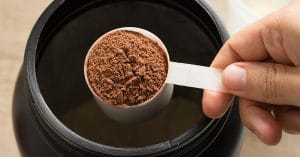
There are a number of protein powders on the market, but don’t think you can use any old powder and expect your child to thrive.
When choosing a fiber supplement for kids, make sure it contains sources of fiber that are appropriate for your child’s age and nutritional needs.
If you choose a fiber supplement with too much fiber or if your child doesn’t need additional fiber in his diet, he may experience abdominal discomfort or diarrhea.
Your pediatrician will be able to recommend an appropriate fiber supplement for your child based on his age and dietary needs.
Final Thoughts
Fiber supplements are a good way to give your kids more fiber in their diets. They can be used to help with constipation, which is often an issue among kids, and they’re important for overall digestive health.
If you’re trying to pick out a fiber supplement for your kid, there are some things you should consider before making a purchase.
The above guide have shown you 10 types of fiber supplements that are helpful and healthy when it comes to giving your child extra fiber in their diet.
PEOPLE ALSO READ: How to reduce the Body Fat off your Children and Make them Fit
